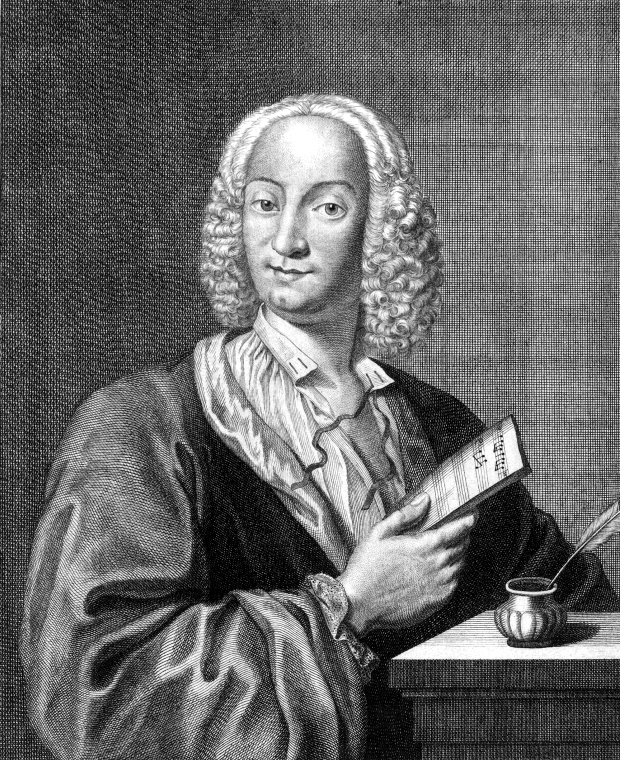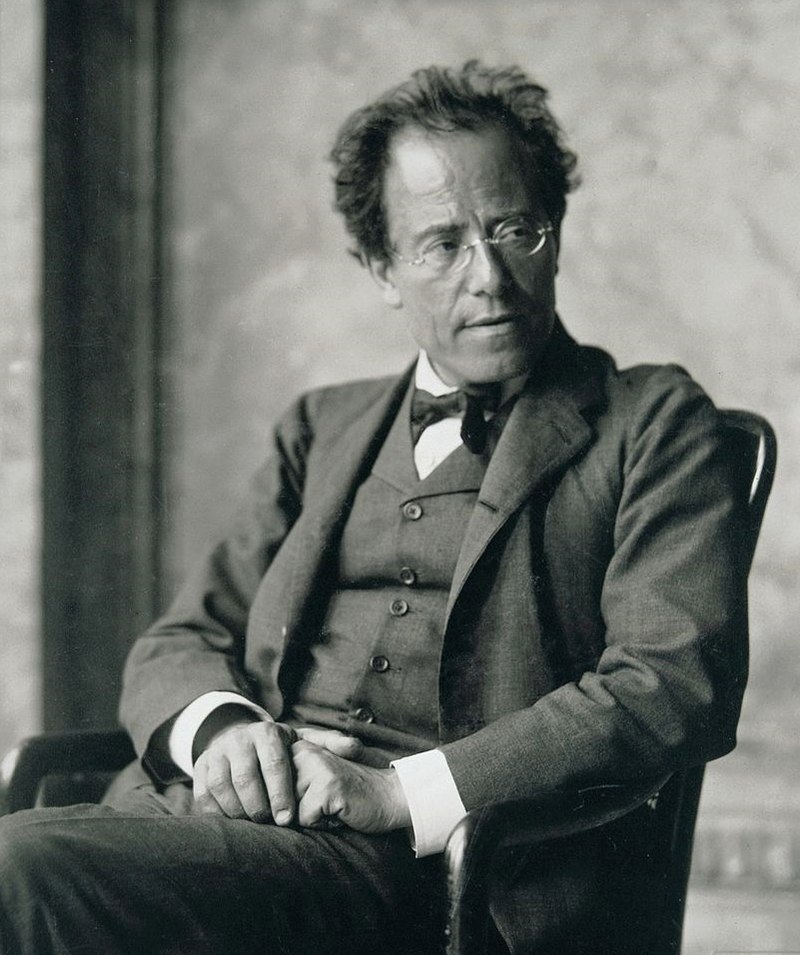 |
| Look! Music stuff. |
Classical Music. Something I know almost nothing about. I have seen
Amadeus, and I am aware about Beethoven because he was in
Bill and Ted's Excellent Adventure.
This would not be the first (or last) time that I've ranked something I know nothing about though. So why not do it again?
This is another one of those things where I pulled out an Excel document to help me rank these bad boys (yes, they are always men... so sexist!). I tried to read up a bit on each one, and rank via numerous factors including their actual catalogue (some famous names are just one-hit wonders, while others have a huge number of what would have been Top 40 hits, presumably... if such a thing existed back then), as well as enuring fame and historic and/or cultural legacy (some may be technically superior composers and beloved in their time, but are less remembered these days for various reasons).
I usually try to avoid looking at other people's rankings when I do my own, so that nothing unduly biases me. But I did take a gander at a multitude of other people's rankings (there are a lot of them) to help me weigh some things and use a little more pure math. In fact, I was able to find 12 different (somewhat trustworthy) rankings out there. They were a mix of things, including top 5s, top 10s, top 20s, top 50s, and so on. More important than where the composers stood in those individual 12 rankings was how many times people were ranked. There was only one single composer on all 12 lists who was ranked every single time That was Beethoven! Yeah... crazy, right? There were some people out there who didn't include either Bach or Mozart in their top 5 (both featured in 11 out of the 12).
In the end, I crunched the numbers and assigned an average ranking for each composer. I've decided to go with the Top 20 for my own ranking, so I don't cover a million different people. I'll include the mathematical "ranking" each composer wound up at as part of it, and you'll quickly see that people in my top 20 actually have rankings higher than 20.
- For example, my 20, Claudio Monteverdi, only mathematically ranks (based on my number crunching) as averaging a placement of 22.0. How can he be 20 if, on average, he's only in 22nd place? Hard-ish to explain. Some factors (like his somewhat low enduring fame, the fact that much of his work is lost, and the number of times he didn't make the cut on other peoples' lists) placed him fairly low, and not even worth making the cut of 20. Yet other factors (e.g. his importance of being a pioneer in opera, his key role in being a transitional figure between the Renaissance and Baroque periods) make him important and rank him higher up their. In the end of crunching all the composers, and eliminating a few weird outliers, even though Monteverdi averaged 22.0, there were only 19 other composers who averaged higher... meaning he places at 20, rather than 22. Does that make sense, sort of? If not, you're just going to have to accept that when doing math, results are sometimes intransitive.
So here we go. Part 1: #20 through #11. I suppose the above explanation already made you familiar with...
.jpg/800px-Bernardo_Strozzi_-_Claudio_Monteverdi_(c.1630).jpg) |
| Mustache Rides: 2 Florins |
20. Claudio Monteverdi
- Nationality: Italian
- Lifetime: 15 May 1567 – 29 November 1643
- Notable Works: Vespers for the Blessed Virgin (1610); L'Orfeo (1607).
- Average Ranking: 22.0
- Discussion: Known both for madrigals (typically unaccompanied secular vocal music compositions of the Renaissance and early Baroque that were eventually replaced by arias) and very early operas, Monteverdi was an early pioneer of the Classical music period. Perhaps the earliest on this list. As my explanation of the rankings earlier alluded to, much of his works are missing... and that's something that we can attribute to just how early he is. In fact, so much of his work is gone that there is an entire Wikipedia page just for his work that's been lost. It can be hard to rank someone who is missing a lot of his work, but it just seems fair that he makes the cut based on his important role as an early figure. Hell, when looking around, one dude even ranked him at #1 (which is crazy, but okay, the guy knows more about what he's talking about than me).
 |
| His punk rock phase? |
19. Béla Bartók
- Nationality: Hungarian
- Lifetime: 25 March 1881 – 26 September 1945
- Notable Works: Bluebeard’s Castle (1918), Concerto for Orchestra (1944); Music for Strings, Percussion and Celesta (1936)
- Average Ranking: 21.0
- Discussion: From basically the earliest dude on my list to one of the latest, the jump from Monteverdi to Bartók covers 300 years. Bartók is definitely one of those "I had never heard of him" guys before I started doing this ranking. Well, I guess now I have heard about him, and he makes the cut above other folks who I had heard of (Gershwin, Mendelssohn, Sibelius), but who didn't make the top 20 cut. While Franz Liszt is the more famous and notable Hungarian composer, Bartók will be remembered as the one whose compositions are a little more "folk."
_(14780185164).jpg/1280px-The_orchestra_and_its_instruments_(1917)_(14780185164).jpg) |
| Doing some Harry Potter spells or some shit. |
18. Richard Strauss
- Nationality: German
- Lifetime: 11 June 1864 – 8 September 1949
- Notable Works: Don Juan (1888); Salome (1905); Also (Thus) Spoke Zarathustra (1896)
- Average Ranking: 20.29
- Discussion: If you think you know nothing about classical music at all, you're wrong! Just think about the opening (fanfare / flourish) of Also Spoke Zarathustra, titled "Sunrise." Even if you haven't seen 2001: A Space Odyssey, you have undoubtedly heard this before, and have thus you know Strauss (Richard Strauss, at least... because fuck both Johann Strauss... both I and II, and that Blue Danube shit). A successor to Wagner as "the" German composer, he was a pioneer of epic orchestral work combined with harmonization. The dude was a child prodigy (like others on this list), writing work at age 6, and continuing on to live and write work until well after his bitch-ass fellow countryman Hitler was dead. Of course, being alive at the time of the rise of Nazis meant that he's been accused of collaboration (or at the least acquiescence by being "apolitical") with the Nazis. That will sort of tarnish a legacy, won't it?
17.
 |
| The original Emo Spider-Man |
Robert Schumann
- Nationality: German
- Lifetime: 8 June 1810 – 29 July 1856
- Notable Works: Carnival (1834–1835); Piano Concerto (1845); Dichterliebe (1840)
- Average Ranking: 17.38
- Discussion: From one German R.S. to another German R.S., Robert Schumann's Piano Concerto remains one of the most widely performed and recorded piano concertos from the "Romantic" Era. He's therefore often considered the greatest of all the Romantic Era composers. Unless you count Brahms. Or Chopin. Or... you know what... we'll get to them later. Hey, and speaking of Romantic, he was taught by pianist Friedrich Wieck and then started dating his teacher's daughter without permission (eventually marrying her). While this list is a total sausage fest, if any woman did deserve to make the cut, it would me Mrs. Schumann (Clara). As with a number of other supposed geniuses, Schumann also had some severe melancholic depressive episodes and suffered health-wise, spending the time he wasn't writing crazy passionate music in mental asylums before dying at 46.
16.
 |
| Look like he about to settle Pennsylvania. |
Antonio Vivaldi
- Nationality: Italian
- Lifetime: 4 March 1678 – 28 July 1741
- Notable Works: The Four Seasons (1723); Gloria (1715); L’Olimpiade (1734)
- Average Ranking: 17.29
- Discussion: Jumping back in time to another early composer, Vivaldi takes us back to the Baroque period as a successor to Monteverdi. While I put The Four Seasons up there as one notable work, it's indeed a set of four violin concertos, and are almost certainly the world’s most popular and recognized works Baroque music. Just listen to Spring, and you'll be like "Oh yeah, I know this." He also found time to be a Catholic priest among all of his time violinin' too. Though pretty popular in his time, he died in poverty after moving to Vienna and was instantly forgotten. Throughout the Classical and Romantic Eras, his work (even The Four Seasons) were largely unknown, and he didn't have his comeback until the early 20th Century when a lot of his "lost" works were found. Good comeback, dude. Though I guess you were too dead to appreciate it. Still.
15.
 |
| Not sure if him, or Guy Pearce playing him in biopic |
Gustav Mahler
- Nationality: Austro-Bohemian (or "Czech," arguably)
- Lifetime: 7 July 1860 – 18 May 1911
- Notable Works: Symphony No. 9 (1909); Symphony No 2 (1894 rev. 1903); Symphony No 3 (1896)
- Average Ranking: 13.44
- Discussion: Speaking of people forgotten after their death, only for their reputation to come back later, Gustav Mahler is another such character. He's also one of those "I've never heard of him" people before I wrote this, as, again, I know nothing about Classical music at all. Of course, being Jewish also played a role in the immediate disavowal of him in his homeland, as it soon fell under the influence of Nazis (who not surprisingly banned his work during that time). After 1945, much of his work was rediscovered, enough so that by 2016, a BBC Music Magazine survey of 151 of the modern era's top conductors ranked three of his symphonies in the top ten symphonies of all time. Which three? Well, the ones I put as examples in "Notable works," of course. That's pretty impressive, no? 30% of the top 10 symphonies of all time are his. Good work, my Czech kinsman (yes, I'm Czech).
 |
| Just saw an eagle do some cool shit. |
14. Franz Liszt
- Nationality: Hungarian
- Lifetime:22 October 1811 – 31 July 1886
- Notable Works: Transcendental Études, Nos 1-12 (1837 rev. 1852); Hungarian Rhapsodies (especially Hungarian Rhapsody No 2, of 1847).
- Average Ranking: 13.42
- Discussion: Unlike some of the others who I had obviously heard of, and others who were certainly on the "I've never heard of" list, Liszt was one of those "oh yeah, that name sort of sounds familiar" people that I had to research a bit more. Good for him, as that research led me to call him the 14th greatest classical music composer of all time. As if my opinion matters. Which it does. Since I am the authoritative figure on ranking all things, with my literal dozens of views for each ranking I post (*cries to self*). Where was I? Ah yes. Liszt. I briefly mentioned this dude before when talking about Bartók. His resume included, among other things, being the most famed and respected Hungarian composer, as well as a virtuoso pianist, conductor, music teacher, arranger, and organist of the Romantic era. A contemporary of others like Chopin, Wagner, and Schumann, this guy is the anti-Monteverdi in terms of work left behind. He has a HUGE amount of work, being a prolific generator of the "New German School." His notable works listing could have gone on forever, since he credited for tons of works that innovated in things like symphonic poems, thematic transformation, and "radical innovations" in harmony. Radical like 80s Ninja Turtles, dude. You have definitely heard Hungarian Rhapsody No 2 before at some time, as it's featured in everything. Like everything. It's especially notable for its frequent use in cartoons, in everything from Mickey Mouse, to Tom and Jerry, to the dueling pianos battle between Daffy and Donald Ducks in Who Framed Roger Rabbit?
13. Giuseppe Verdi
 |
| Giuseppe Verdi. Sort of. |
- Nationality: Italian
- Lifetime: 9 or 10 October 1813 – 27 January 1901
- Notable Works: Va, Pensiero, AKA Chorus of the Hebrew Slaves (1842, from the opera Nabucco); Rigoletto (1851); Aida (1871); Messa da Requiem (1874); Otello (1887); Falstaff (1893).
- Average Ranking: 13.2
- Discussion: Whenever I think of Giuseppe Verdi, I can't help but remember the fact that technically, he and iconic Steelers tackle "Mean" Joe Greene have the exact same name. Yes, "Giuseppe Verdi"is just fancy Italian for "Joe Green." When the Romantic period was going strong (especially in Germany), Verdi stepped forward to become the king of Italian classical music by just sort of doing his own thing. That means he never joined any "movement" like other composers did, but sort of composed whatever he wanted to. Once he tried to co-write a requiem (a mass song for the dead, if you weren't sure what exactly that mean) for the recently dead composer Rossini with a bunch of other people. But it never worked out. Later, when his friend Alessandro Manzoni died, he said "screw this group project" and wrote/finished the requiem all by himself. And how did he do? Well, cut to the 9:15 on this part of his Requiem, and you will certainly see. And that's why his Requiem is second only to Mozart's. And that's just mentioning one thing. It was hard to narrow down his notable works, so I listed a ton of them.
 |
| Yep, this is about all the Handel anyone knows. |
12. George Frideric Handel
- Nationality: German (later British)
- Lifetime: 5 March 1685 – 14 April 1759
- Notable Works: Messiah (especially the "Hallelujah Chorus", 1741); Zadok the Priest (1727); The Arrival of the Queen of Sheba (1748).
- Average Ranking: 12.42
- Discussion: You have heard of, and certainly heard, the Hallelujah Chorus. This is super famous. Even if you know little to nothing about classical music, saying the words "Hallelujah Chorus" should make you immediately know what work I'm talking about, and probably make you sing it in your head. The question is, is Handel a "one-trick pony" with Messiah? That's a question I had to ask myself when making this ranking. In one of the most definitive and well-researched rankings I saw when looking at the internet, which included the input of 173 lead composers, Handel failed to even make the top 50, let alone the top 20. Arguably, Handel did have other works that are still (sort of) renowned, such as his coronation anthem Zadok the Priest. Yet none of those are anywhere near as memorable as Messiah. The truth is, yeah, Handel is sort of a one hit wonder, who had his one epic Italian opera and then did okay stuff in the UK. So why rank him at 12 if composer experts say he's not worthy of the top 50? Well, for first, again, I didn't really let other peoples' rankings influence my own, except for just a little bit of the numbers that I crunched. There is something to be said about being a one mega-hit wonder (followed by a few somewhat-hits) if the mega-hit is so big that your name is guaranteed to be remembered throughout history. Other names ranked on this list I have heard of and/or barely heard of. But if you told me to name 5 composers off the top of my head with no research, Handel would have been one of them. So the "enduring fame and historic and/or cultural legacy" part of my numbers elevates him up. Plus fuck what a bunch of snobby composers say about who the best composers are.
 |
| This could be a photo of anyone from the late 19th C. |
11. Claude Debussy
- Nationality: French
- Lifetime: 22 August 1862 – 25 March 1918
- Notable Works: Pelléas et Mélisande (1902); "Clair de Lune" from Bergamasque (1905)
- Average Ranking: 11.67
- Discussion: Closing out the first half of the rankings at #11 is Frenchman Claude Debussy. He was among the most influential composers of the late 19th and early 20th centuries, although he rejected the common title of an "Impressionist" composer that many gave him (after his fellow French contemporaries in the art world). Unlike some other wunderkids and child geniuses on this ranking, who were cranking out shit at 6 years old, Debussy didn't have his first "big hit" until his five-act opera, Pelléas et Mélisande, debuted when he was 40 years old. Just a few years later is when his piano suite, Bergamasqu, debuted, and its "Clair de Lune" part is one of the most famous and recognizable sections of classical music in history. Like Giuseppe Verdi, Debussy tried not to fit into any specific "style" that existed out there, and charted his own unique course, influenced by Russian and far-eastern music, and including his own style of harmony and orchestral composition. He'd go on to influence Béla Bartók and others, and his unique (and initially derided) styles went on to be embraced by others in the 20th century.
Next time... the Top 10! Hope you weren't as bored by this ranking as I am by classical music. Seriously, I only listen to it to help me fall asleep.

.jpg/800px-Bernardo_Strozzi_-_Claudio_Monteverdi_(c.1630).jpg)

_(14780185164).jpg/1280px-The_orchestra_and_its_instruments_(1917)_(14780185164).jpg)






No comments:
Post a Comment